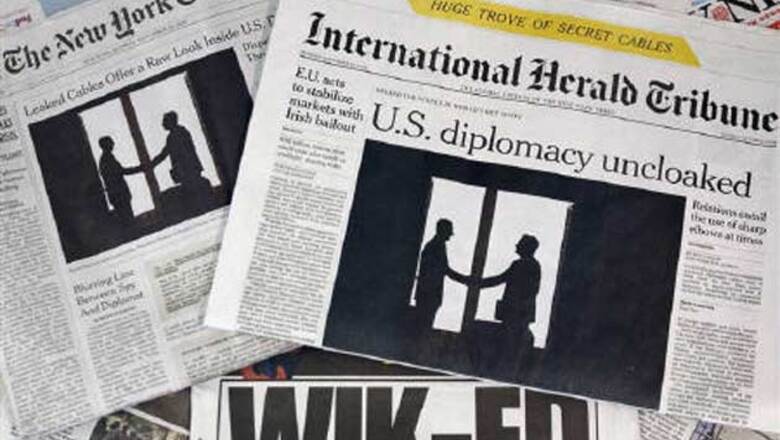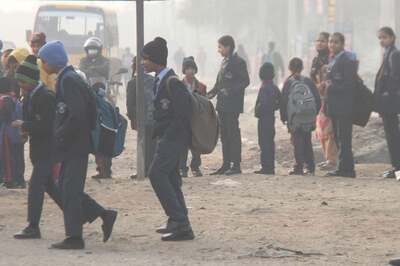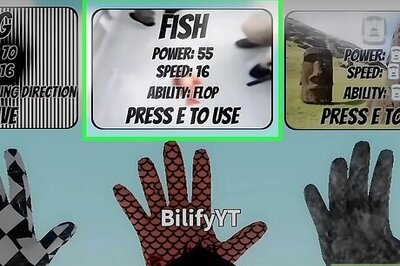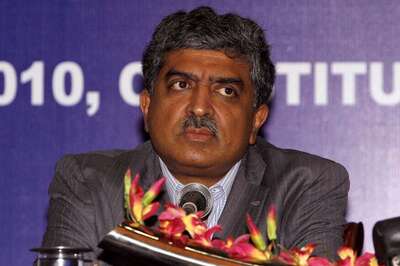
views
Washington: The US government said on Monday it deeply regretted the release of any classified information and would tighten security to prevent leaks such as WikiLeaks' disclosure of a trove of State Department cables.
More than 250,000 cables were obtained by the whistle-blower website and given to the 'New York Times' and other media groups, which published stories on Sunday exposing the inner workings of US diplomacy, including candid and embarrassing assessments of world leaders.
Before Sunday, WikiLeaks had made public nearly 500,000 classified US files on the wars in Iraq and Afghanistan.
The US Justice Department said it was conducting a criminal investigation of the leaks and the White House, State Department and Pentagon all said they were taking steps to prevent such disclosures in future.
While Secretary of State Hillary Clinton said she would not comment directly on the cables or their substance, she said the government would take aggressive steps to hold responsible those who "stole" them.
"The United States deeply regrets the disclosure of any information that was intended to be confidential, including private discussions between counterparts or our diplomats' personal assessments and observations," she told reporters.
Echoing earlier US condemnations of the leak, Clinton said "it puts people's lives in danger, threatens our national security, and undermines our efforts to work with other countries to solve shared problems."
Among the revelations initially made public by the Guardian and the New York Times was that Saudi King Abdullah repeatedly urged the United States to attack Iran's nuclear program.
A 2008 cable posted on the WikiLeaks website quotes Adel al-Jubeir, the Saudi ambassador to the United States, saying of King Abdullah: "He told you to cut off the head of the snake."
In one cable by the US ambassador to Seoul, a top South Korean official is described as saying in February that some Chinese officials would not intervene if North Korea collapsed.
US Ambassador Kathleen Stephens wrote that Chun Yung-woo, then the vice foreign minister for South Korea, said the younger generation of Communist leaders in China did not regard North Korea as a useful or reliable ally and would not risk a renewal of armed conflict on the Korean Peninsula, The Guardian reported.
The New York Times also reported impolitic comments about foreign leaders, including a description of Russian President Dmitry Medvedev, Russia's head of state, as playing "Robin to (Prime Minister Vladimir) Putin's Batman."
While the newspaper said it had obtained the full cache of 251,287 documents from an anonymous source, WikiLeaks itself had posted only 246 of them on its website as of late Monday.
WikiLeaks founder Julian Assange plans to release tens of thousands of internal documents from a major US bank early next year, Forbes Magazine reported on Monday. Assange declined to identify the bank in an interview with Forbes.
The White House ordered government agencies to tighten up policies on handling classified information and the State Department said it was reviewing who has access to its networks and databases and would make those standards more stringent.
A directive from the White House Office of Management and Budget released on Monday said the government's new procedures would ensure "that users do not have broader access than is necessary to do their jobs effectively."
Document disclosures
The leaked documents, the majority of which are from 2007 or later, disclose US allegations that China's Politburo directed an intrusion into Google's computer systems, part of a broader coordinated campaign of computer sabotage carried out by Chinese government operatives, private security experts and Internet outlaws, the Times reported.
Among other disclosures in the newspaper were suspicions Iran has obtained sophisticated missiles from North Korea capable of hitting western Europe and US concerns Iran is using those as "building blocks" for longer-range missiles.
Iranian President Mahmoud Ahmadinejad said on Monday that Tehran's relations with its neighbors would not be harmed by the WikiLeaks revelations of deep Arab suspicions of Iranian motives, saying Washington organized the leak to pursue political objectives.
The United States suspects Iran is using its civil nuclear program as a cover to develop nuclear weapons. Iran denies this, saying its atomic program is solely to generate power.
US Attorney General Eric Holder said there is an active criminal investigation into the leaks and that anyone found responsible will be prosecuted.
The US investigation into the source of the leaks has focused on Bradley Manning, a former US Army intelligence analyst in Iraq. Manning is under arrest, charged with leaking a classified video showing a 2007 helicopter attack that killed a dozen people in Iraq, including two Reuters journalists.
According to the military charge sheet against him, Manning is accused of obtaining "more than 150,000 diplomatic cables." US officials declined to say whether those cables were the same ones obtained by WikiLeaks and the media groups.




















Comments
0 comment